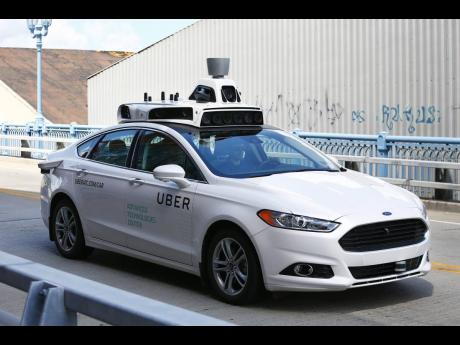ADVISORY COLUMN: INSURANCE
QUESTION: I had an extended stay in the United States recently. The best part was using a family member’s self-driving vehicle. Despite my strong desire not to cede control to the automated systems, I allowed the vehicle to do ‘its thing’. I made 15 trips. They were scare-free and took place without incident. Your article last week about black boxes sparked the following questions: 1) Are motor insurers here ready to offer coverage for self-driving cars? 2) Who would be at fault if a vehicle got involved in an accident when it was not under human control?
− N.G., Kingston 7
INSURANCE HELPLINE: Thanks for your two intriguing questions. They reflect, broadly, the speed at which overseas ideas and technologies find their way here and are being adopted.
Two examples: Last Thursday’s full-page ad about the 2019 World Robot Olympiad was one. WRO organises robotic competitions for young people from ages as low as six to seven years up to university level. The contest began in 2004. It now attracts 20,000 teams from 60 countries, including Jamaica.
The second case is personal. It is about Dick Tracy, the American comic book detective. He was among my favourite among others like Garth, Phantom, for a time, Tarzan and Modesty Blaise. I still remember the unforgettable nicknames of two bad guys in Dick Tracy: Flattop and B.O. Plenty.
Two-way wrist radios were among the tools that Tracy and members of his squad used. That communication device, which first appeared over 70 years ago, was a by-product of the comic strip. When I first read about them as a teenager, it was science fiction. Last Tuesday, I saw the 21st-century version of the wrist radio. It was an Apple Smartwatch 10. Self-driving and flying cars in Kingston are not far-fetched. There is no information about self-driving vehicles on the Insurance Association of Jamaica’s website. Its American insurance industry equivalent, however, has important data on the subject. I will use it to answer your questions.
If the US and South Korea can be used as samples, the Government of Jamaica will have to pass special laws to allow self-driving cars to operate. Sections 4(1) to (3) of the Motor Vehicles Insurance (Third-Party Risks) Act, in my layman’s interpretation, clearly suggests that “a person” will be using “the vehicle on a road” – not a computer system or a robot.
South Korea is one of the world’s most technologically-advanced countries. A lawmaker there recently tabled a bill to clarify liability for accidents involving self-driving cars. Cars come in six groups — Level 0 to Level 5.
Level 0 cars have no self-driving features. Level 3 means that the driver can let go of the wheel most of the time. The automated driving system (ADS) performs all the dynamic driving tasks but requires a human in the driver’s seat. That person should be ready to take over operation of the vehicle within seconds. Level 5 is full automation.
This classification system was developed by automotive engineers around the world. The proposed law applies to Level 3 self-driving cars. It places liability on the person sitting behind the wheel, even though that person may not actually in control of the vehicle all the time.




Leave A Comment